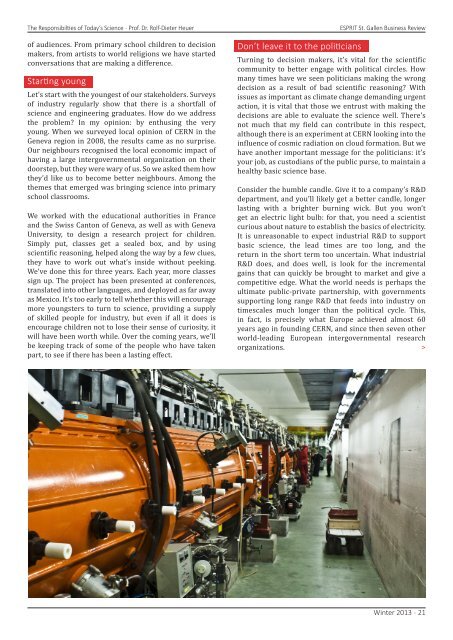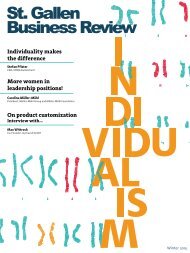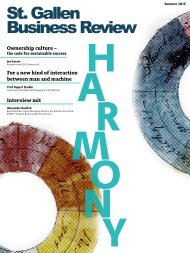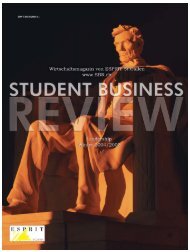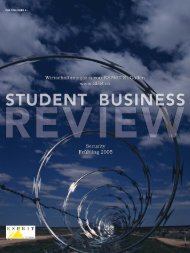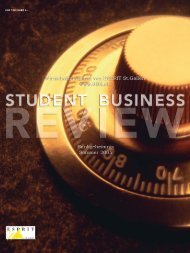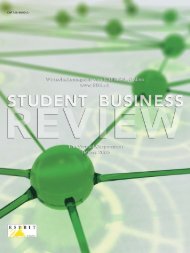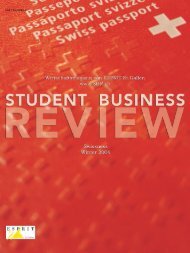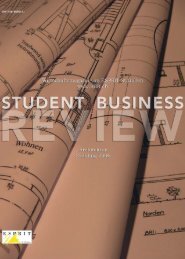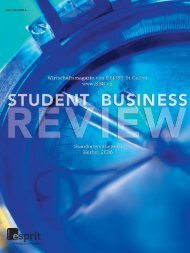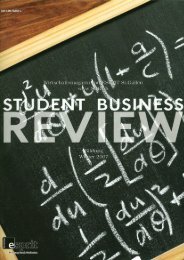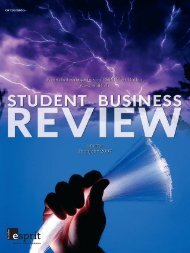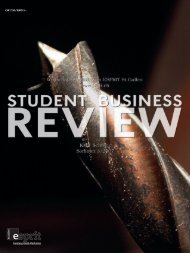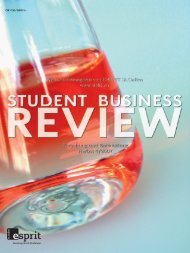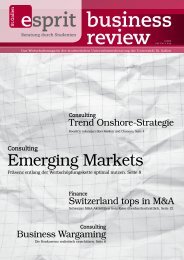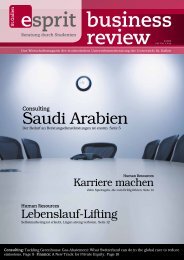Role Models & Responsibility
St. Gallen Business Review Winter 2013
St. Gallen Business Review
Winter 2013
You also want an ePaper? Increase the reach of your titles
YUMPU automatically turns print PDFs into web optimized ePapers that Google loves.
- Prof. Dr. Rolf-Dieter Heuer<br />
<br />
makers, from artists to world religions we have started<br />
conversations that are making a difference.<br />
<br />
Let’s start with the youngest of our stakeholders. Surveys<br />
of industry regularly show that there is a shortfall of<br />
science and engineering graduates. How do we address<br />
the problem? In my opinion: by enthusing the very<br />
young. When we surveyed local opinion of CERN in the<br />
Geneva region in 2008, the results came as no surprise.<br />
Our neighbours recognised the local economic impact of<br />
having a large intergovernmental organization on their<br />
doorstep, but they were wary of us. So we asked them how<br />
they’d like us to become better neighbours. Among the<br />
themes that emerged was bringing science into primary<br />
school classrooms.<br />
<br />
and the Swiss Canton of Geneva, as well as with Geneva<br />
University, to design a research project for children.<br />
Simply put, classes get a sealed box, and by using<br />
<br />
they have to work out what’s inside without peeking.<br />
We’ve done this for three years. Each year, more classes<br />
sign up. The project has been presented at conferences,<br />
translated into other languages, and deployed as far away<br />
as Mexico. It’s too early to tell whether this will encourage<br />
more youngsters to turn to science, providing a supply<br />
of skilled people for industry, but even if all it does is<br />
encourage children not to lose their sense of curiosity, it<br />
will have been worth while. Over the coming years, we’ll<br />
be keeping track of some of the people who have taken<br />
part, to see if there has been a lasting effect.<br />
<br />
ESPRIT St. Gallen Business Review<br />
<br />
community to better engage with political circles. How<br />
many times have we seen politicians making the wrong<br />
<br />
issues as important as climate change demanding urgent<br />
action, it is vital that those we entrust with making the<br />
decisions are able to evaluate the science well. There’s<br />
<br />
although there is an experiment at CERN looking into the<br />
<br />
have another important message for the politicians: it’s<br />
your job, as custodians of the public purse, to maintain a<br />
healthy basic science base.<br />
Consider the humble candle. Give it to a company’s R&D<br />
department, and you’ll likely get a better candle, longer<br />
lasting with a brighter burning wick. But you won’t<br />
get an electric light bulb: for that, you need a scientist<br />
curious about nature to establish the basics of electricity.<br />
It is unreasonable to expect industrial R&D to support<br />
basic science, the lead times are too long, and the<br />
return in the short term too uncertain. What industrial<br />
R&D does, and does well, is look for the incremental<br />
gains that can quickly be brought to market and give a<br />
competitive edge. What the world needs is perhaps the<br />
ultimate public-private partnership, with governments<br />
supporting long range R&D that feeds into industry on<br />
timescales much longer than the political cycle. This,<br />
in fact, is precisely what Europe achieved almost 60<br />
years ago in founding CERN, and since then seven other<br />
world-leading European intergovernmental research<br />
organizations. ><br />
Winter 2013 - 21


